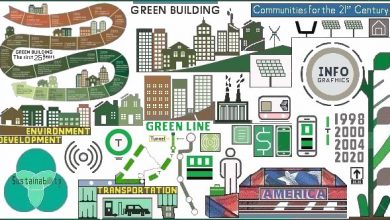
Could you tell us about a time that you found a way to improve a process? How did you do it? What impact did this have?
My first experience in supply chain was all about global process improvement. I didn’t know anything at all about supply chains. I used the frameworks that were available to me within Du Pont. It included product flow, information flow, financial flow, value creation/destruction flow and risk mitigation.My work was extraordinarily successful and it put my career on a trajectory for which I will be forever grateful. Through this work I have learned about the value and importance of cross functional processes and how they add value to businesses.
How would you manage the money necessary for procurement?
Understand supplier base: First port of call is to understand the supplier base using the Kraljic matrix which aims to classify the supplier base into a simple 2×2 matrix impact with axes for supply risk and profit impact. (Strategic and non-strategic broken into leverage, bottleneck and non-critical items each of these dictates the nature of the relationship and importantly this translates into the time/effort we will spend on these suppliers.)
Actually managing the sheer volume of contracts and information. Nowdays, no one wants to read an 80 page contract to work out what needs to happen let alone be able to manage hundreds of thousands of these documents. This function is a great contender for artificial intelligence in supply chain. (Get the Ai to do the heavy lifting on all the existing contracts. )
Contracts going forward: I would be having a close look at what I could achieve with smart contracts, or at the very least including a schedule which outlines the purpose of the contract, the parties, the goal(smart), what each will contribute(smart), how we know when success is achieved(smart),how we resolve conflict,how we ensure that the supplier will be self reporting, self correcting,self managing; meeting review schedule, proposed contract expiry date.
How do you add value to your supply chain team with your experience and competencies?
I am fortunate because in addition to my supply chain skills, I have high level strategic and business change and transformation, governance and risk mitigation skills. The combination, along with my international co director qualifications, has taken me into several key leadership positions including NED roles.
Sometimes in supply chain we lose the ability to think at a higher level and from my perspective this is critical. I add value to my clients by assisting them to re-imagine and co-create resilient, fit-for-purpose supply chains and this is becoming more important than ever in our post covid-19(After C-19) world
Often supply chain is deemed, completely operational and tactical, and reactive. Certainly some supply chains are just that, but those are the supply chains which will struggle for survival in the new world.
How much supply chain management benefits a business?
I wish that everyone understood what I understand in terms of cross functional business processes and servicing customers. Supply Chain is critical to every business. Every business takes some sort of raw material (even services do this) adds value, and then on sells the product. Supply chain(or value chain) is the process of adding value, and that’s ultimately what keeps the business in business, so therefor it’s absolutely critical to a business. Often these days it also includes value destruction so it’s important we keep an eye on the value creation(destruction) process.(An example of value destruction is making product that optimises the utilisation of a manufacturing plant, but has no value to customers, so therefor it sits in our inventory for ever, thus destroying value and yes, to my absolute amazement, this is still happening today.)
How do you keep up with the new developments in supply chain management?
New Tools and Technologies, including the IOT are changing supply chain in significant ways. So too, has the covid-19 experience.
As a consultant and thought leader in the industry, it’s important that I am up to date.
- I have a virtual team in the Philippines who are researching supply chain tools and technology and ensuring that my team and I are all across new developments.
- I have several go to websites that I use.
- I am really interested and excited by future trends and listen to futurists regularly.
- I am active on social media including LinkedIn. I have more than 15K connections with like minded people and am a member of many of the on-line groups
- I am a member of most supply chain associations and attend webinars and events regularly.(as well as a number of strategy, business transformation, governance, risk and director groups.)
- I write blogs and am active in the supply chain thought leader space. Whilst I am based in Australia I like to keep in touch with colleagues within the region and then globally to better understand what’s happening in their geographies.
- I attend conferences and am often asked to speak and do find these opportunities great for professional and personal development and knowledge building.
I feel privileged to have had the experiences that I have had in supply chain and to also have the opportunity to share my experiences with others in a way that helps them in their careers and assists their businesses to improve in extraordinary ways.
Addendum:
A little silver lining to the covid-19 situation:
Have you ever heard the term ‘supply chain’ used so frequently in the daily news cycle? Did people even know what a supply chain was prior to Covid-19? You would be working hard to find someone who doesn’t know what a supply chain actually is now.
The crisis has made it clear why our current supply chains are gaining much notoriety. It’s a sad fact that many now understand the dire consequences of poor supply chains.
Now, the challenge is to re-imagine and co-create better, stronger, more fit-for-purpose and more resilient supply chains now. Those who do will be successful. Those who don’t, will struggle for survival in the after covid-19 (AC-19) era. I am so excited about our supply chains of the future! I cannot wait to see them in action!
Reference: “Lora Cecere’s supply chains to admire”











